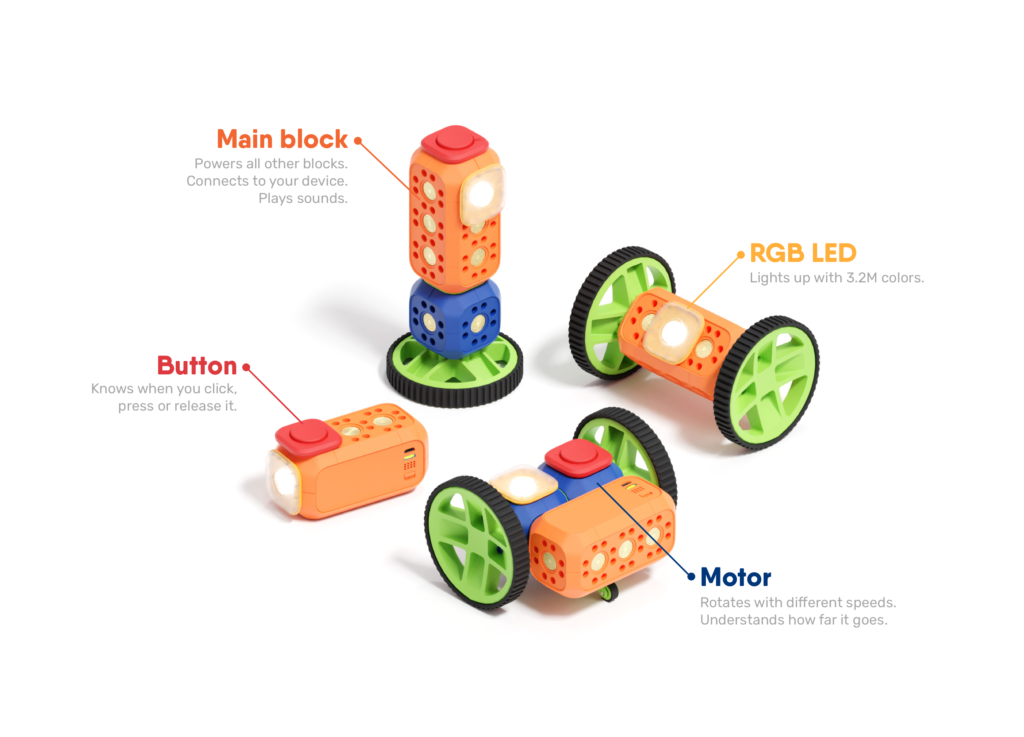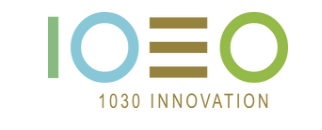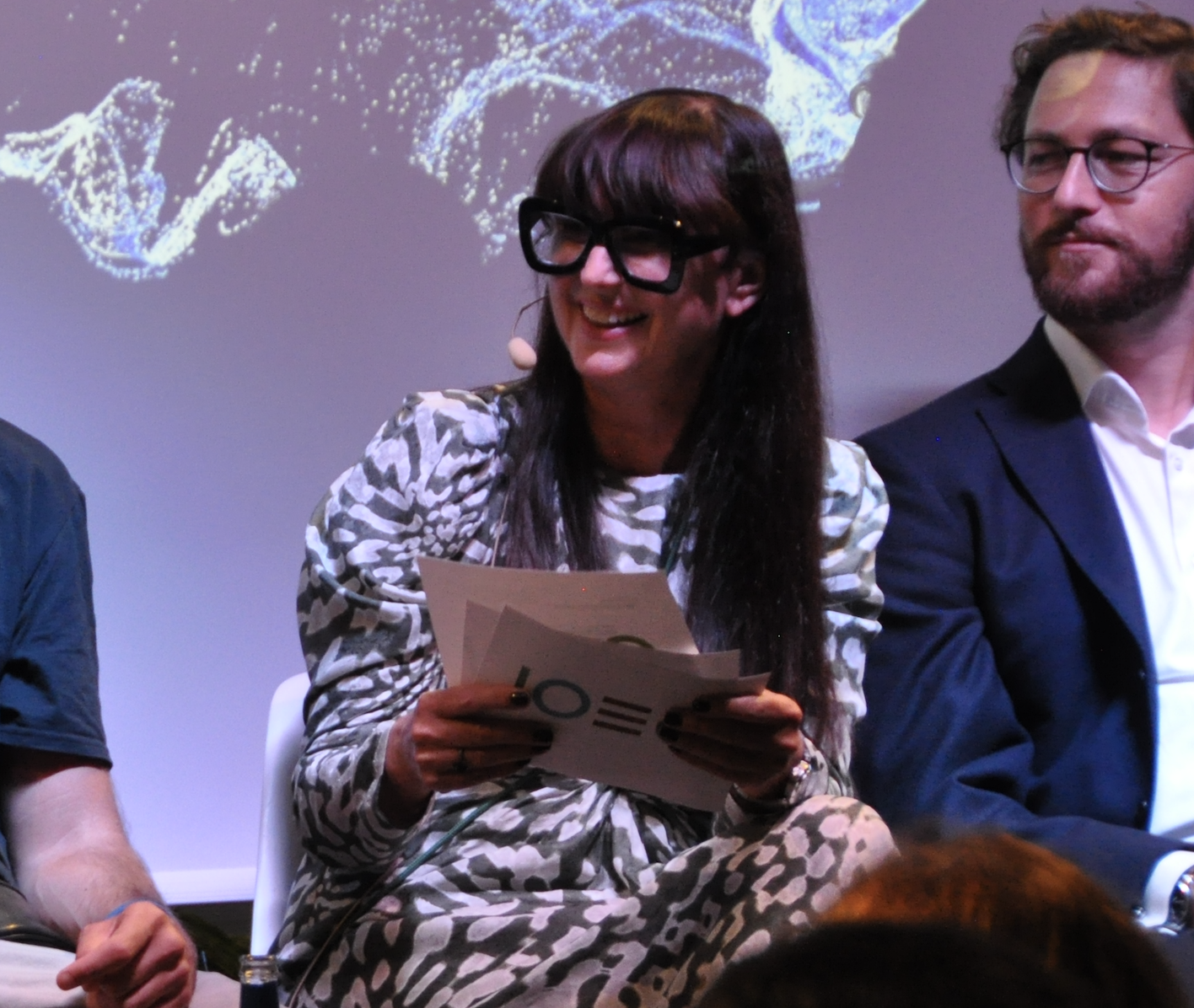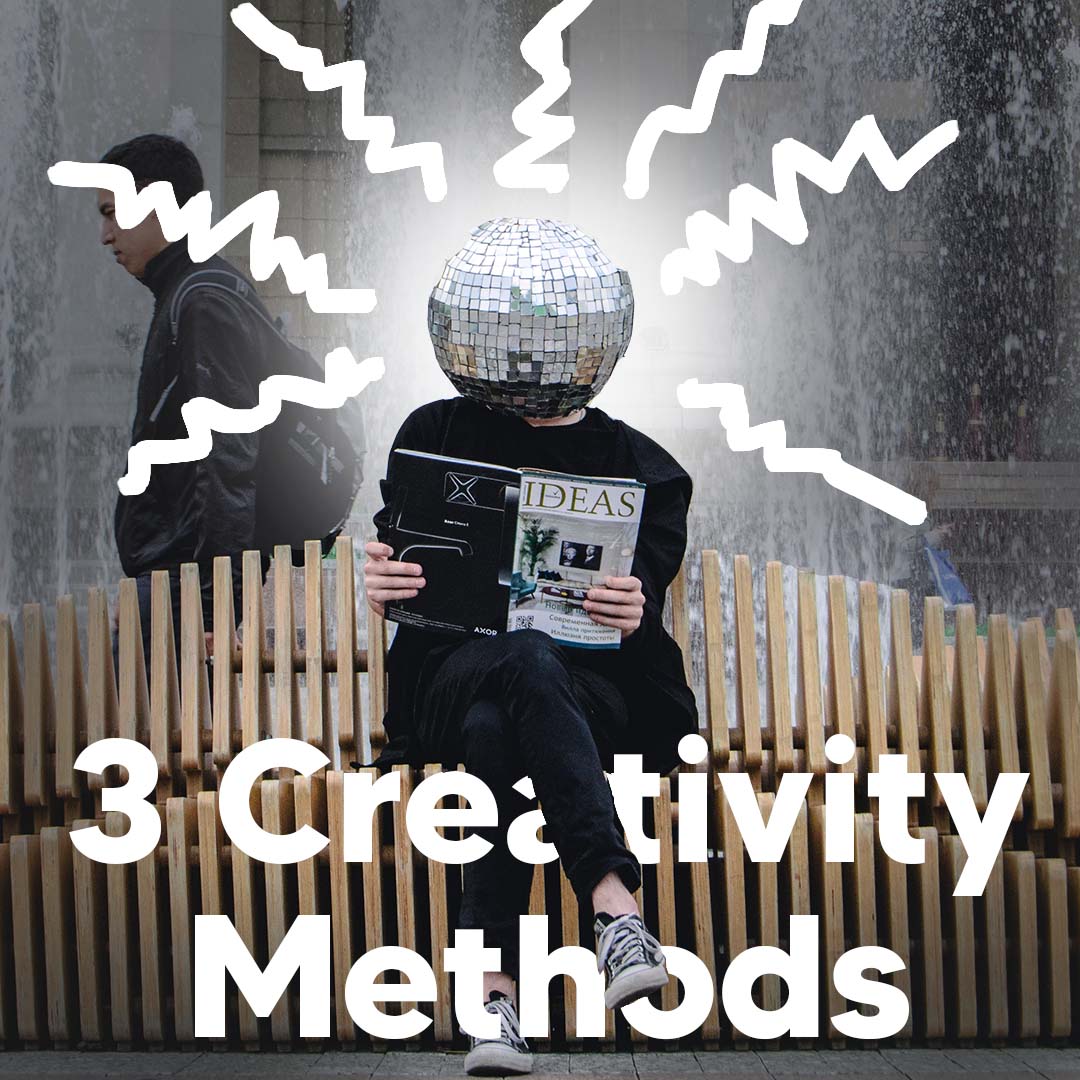In this month’s “Start-Up Made In Austria” we want to introduce the innovative Viennese company “Robo Wunderkind“. One might know them from the Austrian TV-show “2 Minuten, 2 Millionen” or have found them on Kickstarter in the past. Their goal is to teach new technology and coding to young children through playing.
Motivated by the vision of inspiring children at an early age for the future topics of robotics and coding, Ukrainian-born Anna Iarotska founded the Startup Robo Wunderkind with Yuri Levin in 2014. The robot sets of the Viennese start-up are now used by educators in more than 500 international schools and educational institutions and inspire more than 5,000 private users. Anna has received dozens of awards for Robo Wunderkind: last year, she won the Female Founder Award of the German Digital Prize – The Spark as well as the Digital Female Leader Award in the IT-Tech category, among others. In addition, the Robo Wunderkind kits were able to meet the strict criteria of the Education Alliance Finland and were awarded the “Certified Pedagogical Quality 2019” seal of approval. As a member of the Global Executive Panel on HolonIQ since August 2019, the 36-year-old founder is one of the top opinion leaders in digital education trends. Recently, Robo Wunderkind also just won The EdTech Cool Tool Award 2020 in the category of “of robotics (for learning, education) solution”, which is a highly reputable award in the US edtech market.
This interview was held with Anna Iarotska, CEO & Co-founder of Robo Wunderkind.
What does Robo Wunderkind do?

We have developed a robot building set that improves the way children play, learn and create technology at school and at home with digital tools. With our modules, children between the ages of 5 and 14 build robots according to their own ideas and program them easily via app. The motors, switches, connection cubes or wheels can be plugged together as desired and connected with Lego bricks. So, there are no limits to creativity – and kids learn programming with lots of fun.
When was your company founded? What were the biggest challenges to overcome then and what are now?
Together with Rustem Akishbekov and Yuri Levin I founded Robo Wunderkind in 2013. With our EdTech company, we wanted to develop a new approach to cross-sectional technologies and education that would inspire kids as early as kindergarten age. In the year we founded the company, our biggest challenge was therefore the development of the prototype and the associated innovation loops: We underestimated how much time it would take to readjust the individual modules. From the very beginning, we paid attention to developing a high-quality learning toy. This has paid off – Robo Wunderkind has been awarded several times as a pedagogically valuable tool and has won many other prizes. Today, we strive to recruit talented people in engineering, marketing and sales to push the development of our products and our growth into new markets.
How was the idea born?
I worked in consulting and investment management for several years, followed by a second master’s degree at the London School of Economics. During my studies, I noticed how quickly technology changes the way we work. When I joined the organization team at the Pioneers Festival in Vienna, I met my co-founders Rustem and Yuri and together we decided to work on a learning robot for children.
Who is behind the start-up?
Meanwhile our team consists of 15 employees from 9 countries. Among them are passionate educators, engineers, designers and sales and marketing specialists who share a common mission and vision to inspire children to be creative with technology. As CDO, Yuri is mainly working on the technical development of our robots. I frequently attend relevant EdTech events and international conferences to establish Robo Wunderkind in other countries.
Who are your customers?
Our Robo Kits are suitable for private use and for educational institutions. Thanks to the intuitive user interface, young and old can easily start programming at home. In school lessons, the kits can be used interactively with teaching materials developed by and for educators, without any previous IT knowledge being required. This is fun for students and teachers.
What is your business model?
With our online shop and sales partners such as Betzold or Christiani, we supply primary and secondary schools, kindergartens and youth hostels with Robo Wunderkind kits as well as teaching and learning materials. We also offer webinars and workshops for pupils, educators and parents. During the quarantine period, we have organized a free Makers Marathon: we code and tinker with kids and parents via digital live workshop and motivate them to take part in Home Challenges. All videos can also be watched afterwards on the Robo Wunderkind Youtube channel.
How did your start-up grow?
We launched a Kickstarter campaign in 2014 and have gained many fans and supporters in the recent past. Among them are investors and media who have reported about us or invited us to the Austrian Startup TV show 2 Minuten 2 Millionen. We didn’t get a deal there, but we did get the opportunity to introduce ourselves to a wide audience. Afterwards, we received a lot of test inquiries, including many curious and motivated educators. They liked the simple introduction with Robo Wunderkind, which can be integrated into any school subject – they have always been missing such a tool.
What are you working on right now?
Currently, the launch of our third product generation is imminent, which will include a new app and different levels of difficulty. In October last year we launched a second crowdfunding campaign to push our product development. The campaign was a huge success. We reached the desired sum of 50.000 USD in less than 13 days and with 342 supporters!
How do you see your future? Which goals do you pursue?
In the near future, we want to be the leading provider of EdTech toys in Europe and equip educational institutions nationwide with robotics kits to integrate programming languages as a fixed component in European curricula. We see the greatest potential especially in children from the age of 5 years on, as the cognitive awareness window is running at full speed at this age. Newly learned skills are stored particularly well and for the long term, and childlike curiosity unleashes endless fiddling fun.
What should one know about entrepreneurship in Austria?
Austria may be a small country, but it has a huge innovative power and large investor volumes. The start-up scene is booming. Austria is a pioneer and a role model for other European countries, especially in the education sector. The Austrian universities are very committed and bring teachers up to date with innovative solutions for teaching in numerous further and advanced training courses. Coding and robotics are no longer foreign words and are slowly finding their way into the classroom.
Do you have any tips for someone who wants to be an entrepreneur?
Simply start with your own project. Network with like-minded people, get feedback and grow with the project. It’s an indescribable feeling to see how your project develops – and you gradually acquire a certain expertise. For me there was no better school.
Find more Start-ups made in Austria and recent innovation news here.




